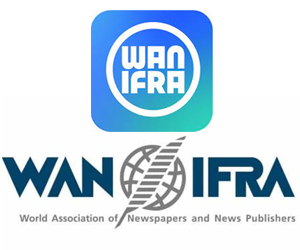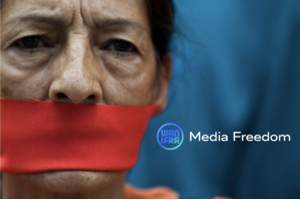Politics
Stronger democratic institutions, governing structures to fuel Bangladesh’s future success:US envoy Miller
Published
4 years agoon
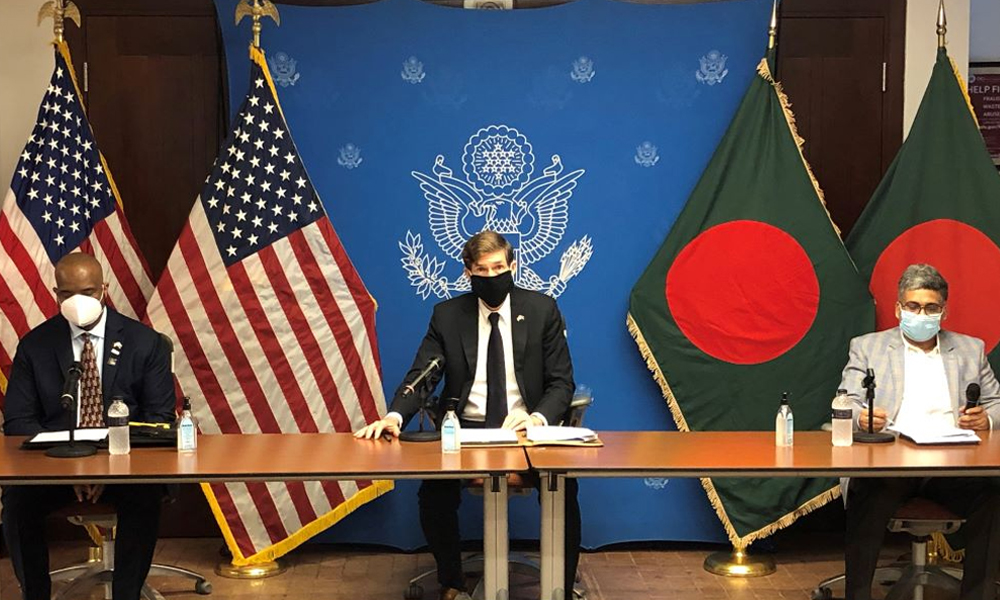
Ambassador Miller said Bangladesh is a nation on the move with great resilience, promise and opportunity but economic development needs to go forward with democratic development
Describing Bangladesh as a young nation of hope and promise with significant achievements in the last 50 years, US Ambassador to Bangladesh Earl R Miller has said Bangladesh’s future success will be fueled by strengthening of democratic institutions and governing structures with a plural and democratic electoral process in place.
“Democracy can only function when all people are fully included, their rights are protected, their voices are heard, and their votes are counted,” he said while delivering a keynote speech at a dialogue held virtually.
Cosmos Foundation, the philanthropic arm of the Cosmos Group, hosted the dialogue titled “Bangladesh-US Relations: Prognosis for the Future” as part of its ongoing Ambassadors’ Lecture Series.
The opening remarks were delivered by Cosmos Foundation Chairman Enayetullah Khan. The session was chaired by Dr Iftekhar Ahmed Chowdhury, a renowned scholar-diplomat and former Advisor on Foreign Affairs of Bangladesh Caretaker Government.
Distinguished Fellow & Board Member at Bangladesh Enterprise Institute (BEI) Ambassador Farooq Sobhan, President of Bangladesh Institute of Peace and Security Studies (BIPSS) Major Gen (Retd) ANM Muniruzzaman, Honorary Advisor Emeritus, Cosmos Foundation Ambassador (Retd) Tariq A Karim and former Principal Secretary to PM Md Nojibur Rahman comprised the panel of discussants.
After a difficult start, Enayetullah Khan said, the relationship between Bangladesh and the USA has largely prospered over the better part of five decades now.
It has prospered on the basis of strong economic ties and people-to-people links, apart from the shared value of freedom and pluralism that is revered by the people of both countries, he said. “In a conflicted world, Bangladesh appears to have no enemies.”
Khan said if a Bangladesh-US relationship can be forged that will advance Bangladesh’s quest for development, and the US aspirations for peace and stability, it can become a model for similar sets of bilateral relations between the US and others.
He said this can be best achieved through deepening the direct links between Dhaka and Washington, and display a strategic dimension of the partnership, one where both see each other as partners in search of peace, stability and growth.
Dr Iftekhar Chowdhury highlighted the importance and significance of reviewing Bangladesh-US bilateral relations with a view to discussing how these could be widened and deepened further to mutual advantage.
With regard to the US, he said, Bangladesh is very much in that country’s radar as a friend and partner.
As Bangladesh graduates out of the list of LDCs, Dr Iftekhar said, American support in obtaining market access will be critical in helping it grow and progress economically.
Bangladesh also must be able to learn to handle the complexities of dealing with America, he said, noting that the US is a unique system globally with many elements within that system both coordinate and compete with one another to contribute to policy making.
The challenge for Bangladeshi diplomacy is to be able to identify appropriate elements of desired outcome and engage them, Dr Iftekhar said.
Democracy & Human Rights
Ambassador Miller said Bangladesh is a nation on the move with great resilience, promise and opportunity but economic development needs to go forward with democratic development; and respect for democracy and human rights are “mutually reinforcing”.
The US envoy, who is at the fag-end of his tenure in Dhaka, said every vibrant democracy must work constantly to live up to its founding ideals and commitment to human rights and social justice for all citizens.
As a friend, Miller said, he raised the issues of concern over human rights at the highest levels as he finds it an important part of his job to promote accountability and strengthen human rights and democracy in Bangladesh. “And those conversations are always honest, direct and respectful.”
The US envoy said the United States supports “free, fair, credible, participatory and peaceful elections” that reflect the will of the Bangladeshi people.
He said they support a plural and democratic electoral process with protections for voters and participants set out so admirably in Bangladesh’s constitution.
In every country, the US diplomat said, it is important that all political parties, voices and all voters can participate and have confidence in the electoral process.
Miller said freedom of the press and expression is vital for any healthy democracy while media, civil society members, opposition groups, and peaceful protesters must be able to express their views and advocate for change without fear of retribution. “Voices of dissent and disagreement need to be heard and respected.”
The US envoy said he believes that the strongest democracies flourish from frequent and lively debate and the two countries can have these candid conversations and disagreements over these concerns while maintaining close partnership.
Summit for Democracy
About the Summit for Democracy that began on Thursday, the Ambassador said the Summit is a two-part process and the second one will be an in-person meeting at about this time next year.
To get invited, he said, participants will need to show a commitment to the Summit’s areas of focus, strengthening democracy, defending against authoritarianism, addressing and fighting corruption and promoting respect for human rights.
Miller said not all democracies are able to attend the Summit but all who value democracy can support the tenets of the Summit and strive for progress in advancing democratic principles.
“And I obviously hope we’ll have continued engagement on this topic with government officials in the coming weeks. But in the long run, the US is seeking to engage any and all countries that show a genuine willingness and making commitments that support the Summit’s goals,” he said.
Former Ambassador Farooq Sobhan said this is an issue which obviously has caused some measure of concern in Dhaka as people seek to know why Bangladesh has not been invited to the Democracy Summit.
“So, perhaps some people see this as a way of conveying a message that maybe we need to make some improvements in Bangladesh,” he said.
The veteran diplomat said they have been told, within quotes from reliable sources, that Bangladesh will be invited to the next democracy Summit, which hopefully will be an in-person one.
One of the issues which featured prominently in his many conversations is how Bangladesh with its remarkable achievements takes this relationship to the next level.
“If you look back over the last 50 years, there have been different issues which have in a sense, dominated the relationship in the early years, ” Farooq Sobhan said, adding that “how do we handle these complexities in the relationship, I think, that’s going to be a major challenge.”
But he sees enormous opportunities in the relationship and said Bangladesh and the US have a very diverse relationship.
BIPSS President Muniruzzaman said, “Our relationships are enduring, and they grow from strength to strength. We need to nurture them, and fundamental to everything as Ambassador did mention in his remarks, is the growth, sustenance and development of democracy in Bangladesh.”
He said, “Bangladesh needs a greater presence in US media if it wants to increase its profile and increase understanding of our positions there.”
Therefore, the security analyst said, media engagement has to be effective between the two countries.
Digital Security Act
Ambassador Miller said the Digital Security Act can be used to suppress and criminalize free speech and it is important not to confuse digital security with cyber security.
A focus on control of digital media can distract from much needed efforts to protect against malicious cyber security threats, he said.
Miller said they are concerned about arrests and arbitrary detention of journalists and civil society activists under the DSA and encouraged the government of Bangladesh to revise the law to bring it into conformity with Bangladesh’s international commitments on human, civil and political rights and to ensure it provides for checks and balances against arbitrary arrest and other undue restrictions on the right to legitimate exercises a freedom of expression.
He said the US values freedom of expression, including online expression, as a key component of democratic governance.
“And I really appreciate the dialogue we’ve been able to have with the government of Bangladesh on how to improve legislation to ensure Bangladesh’s security is addressed. But not at the cost of its own democratic principles,” said the US envoy.
Former Principal Secretary Nojibur Rahman said the current leadership of Bangladesh is fully committed to the issues of governance and human rights.
He said the constitution is enshrined on the values of good governance and human rights, which was formulated by Father of the Nation Bangabandhu Sheikh Mujibur Rahman.
“So, when the ambassadors meet the leadership, the head of the government –the Prime Minister– makes it unequivocally clear that her government is fully committed to the high standard of good governance and human rights,” said the former Principal Secretary.
Former diplomat Tariq Karim recalled that the administration of the US was hostile to Bangladesh in 1971, but people were very fond. “Ultimately, the relationship that was established even during the Liberation War was between the people of Bangladesh and the people of the United States.”
As the US Ambassador talked about democracy and good governance in Bangladesh, he said, “We’re a fiercely proud nation and I think our history and our reactions to major pressures on us in history have shown how we can stiffener back and take on powers superior to us, if necessary, even at our own cost but we won’t bend to that.”
Therefore, Tariq Karim said, when big powers or anyone external tries to force them into a direction, they probably come up with some sort of an opposing force either seen or unseen.
The foreign affairs analyst thinks everyone in such dealing should keep in mind that ultimately citizen to citizen, people-to-people relations, and human nature and human reactions on the ground level will translate into politics and will reconfigure the shape of politics if push comes to shove.
“Every democracy is still working and in progress. No one can give a lecture to other democracies about how to do it as each nation has its own way of doing it. I think the focus should be more on helping those countries build up resilience and capacities in the areas they are lacking,” he said.
When nations are confident, most of the other things come into play automatically and they will do so organically in a natural way, Tariq Karim observed.
“But if we try to force it, those countries have their own egos, their own self-respect and their own identities, they’ll stand up and push back. It won’t help achieve the larger goals that we’ve in our minds,” the diplomat mentioned.
You may like
-
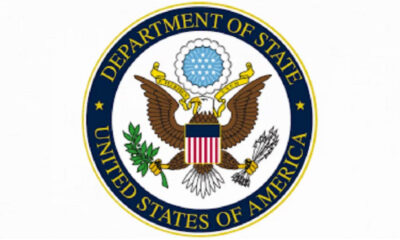

‘US does not favour one party over the other’
-
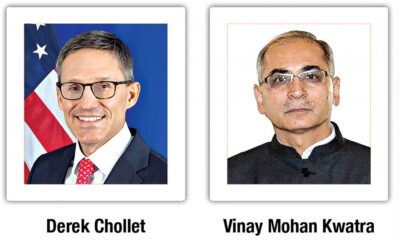

2 top officials from US, India arrive in Dhaka today
-
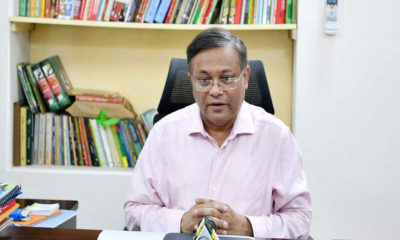

Hasan questions human rights situation in US
-
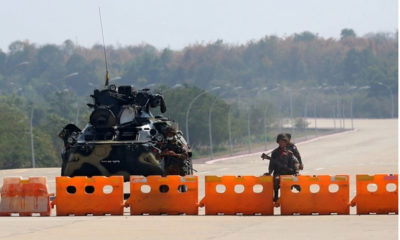

US issues sanctions on alleged arms dealers for Myanmar junta
-
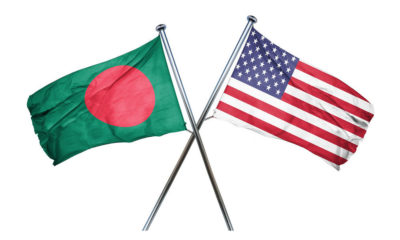

US sees progress but indicates no sanction withdrawal
-
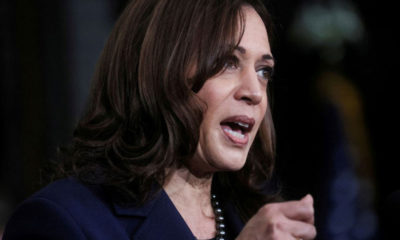

US takes steps to counter Ukraine crisis, energy costs
Bangladesh
Investigation: Hasina’s ‘Shoot Directly’ Order and Its Deadly Consequences
Published
7 months agoon
July 25, 2025
On the morning of July 27, 2024, Sheikh Hasina stood silently at the podium of the National Institute of Traumatology and Orthopedic Rehabilitation (NITOR), commonly known as Pongu Hospital, in Dhaka.
For nearly 14 seconds during her eight-minute emotional speech, the former prime minister remained silent. A visible pain marked her face, reflecting the weight of the bloodshed that had occurred since July 16, when police forces fatally shot Abu Sayed in Rangpur with lethal weapons. That day, five more lives were lost amidst violence in Dhaka and Chattogram.
By the time Hasina addressed the crowd at NITOR, the death toll across the last two weeks had reached at least 162, many of whom had been shot with military-grade weapons by state security forces, according to The Daily Star’s investigations.
“I seek justice from my fellow citizens. What crimes have I committed to deserve this?” 77-year-old Hasina asked after visiting some of the injured at the hospital.
“I don’t want any mothers to lose their children like this. I’ve lost my parents; I know the pain… So many lives have been lost, so many families shattered. Who is responsible for all this?…” she began, but then, overcome with emotion, she left the stage in tears, unable to finish her words.
This heartfelt public address sharply contrasts with what was happening behind the scenes. An investigation by The Daily Star reveals that a state-sponsored machinery for mass violence had already been put into motion.
Just nine days earlier, on the evening of July 18, 2024, a phone rang inside the ousted prime minister’s residence, Gonobhaban, and Sheikh Hasina answered. On the line was Sheikh Fazle Noor Taposh, then the mayor of Dhaka South City. What followed was a startling disclosure of a lethal plan.
“We are now doing things differently. We are capturing photos with drones, and sending helicopters to several places,” Hasina told Taposh.
“Wherever they [the state forces] see gatherings, from the sky… I am getting it done from above, already started in several areas… already underway,” she said, while Taposh repeatedly pressed for launching a large-scale arrest campaign.
Politics
July Uprising: Anisul and Salman Jail Sentences in Omar Murder Case
Published
7 months agoon
July 25, 2025
A Dhaka court today ordered the imprisonment of former law minister Anisul Huq and former adviser to Sheikh Hasina, Salman F Rahman, in connection with the murder of Sajedur Rahman Omar during the July mass uprising.
Dhaka Metropolitan Magistrate Mehedi Hasan issued the arrest order after police produced them before the court following their two-day remand in the case. The court was requested to keep them in custody until the investigation is complete.
Previously, on July 23, Dhaka Metropolitan Magistrate Mahbub Alam had granted a two-day remand for both Anisul and Salman in connection with the case.
According to case documents, Sajedur Rahman Omar participated in a rally against discrimination near Kajla Bridge in Jatrabari on July 21 of last year. He was shot in the head during the event and succumbed to his injuries the following day.
A case was filed at Jatrabari Police Station on January 3 this year, naming 79 individuals, including Sheikh Hasina.
Anisul Huq and Salman F Rahman were arrested in the Sadarghat area of the capital on August 13, 2024, as they attempted to flee via waterways.

Hasnat Abdullah, the chief coordinator for the southern region of the National Citizens’ Party (NCP), has called for the resignation of Health Adviser Noorjahan Begum, accusing her of nepotism linked to Chief Adviser Professor Dr. Muhammad Yunus.
Speaking at a rally in Chandpur town on Wednesday, July 23, Hasnat characterized the Health Adviser as a prime example of favoritism within the interim government. He demanded that she return her salary and government benefits and step down immediately, asserting that she lacks the necessary qualifications and effectiveness for her position.
Addressing recent aviation and infrastructure accidents, Hasnat emphasized, “We do not want a Bangladesh where planes crash and buildings collapse.”
He also expressed concerns regarding the safety of military personnel, urging thorough inspections of military equipment. “Our brothers in the Air Force must be protected. It is time to verify if the equipment they use is safe,” he stated.
Further criticizing the Health Adviser, Hasnat questioned her competence and alleged her appointment was solely due to her connections with Dr. Yunus through Grameen Bank.
“She has no understanding of healthcare or medical services. Her only qualification is her association with Yunus. Her salary and vehicle—funded by taxpayers—are a betrayal to the public,” he concluded.

From Confusion to Clarity: Dheow’s Book Helps Users Master ChatGPT Conversations

Pre-Orders Open for Mojahidul Islam’s Latest Computer Book ‘AI Shikhun, Taka Gunun’

Bangladesh’s Press at a Crossroads: Between Promises of Reform and the Shadows of Repression









